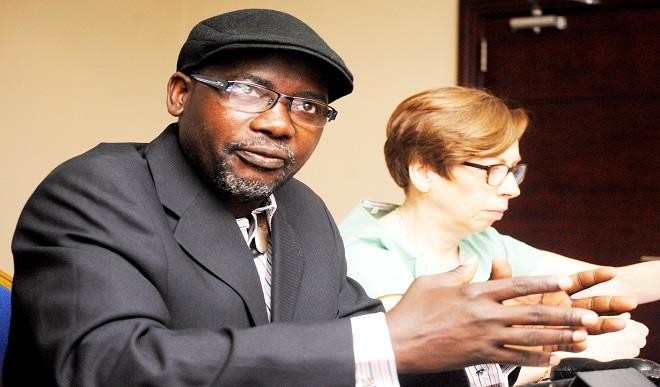Why we are planning Yoruba, Igbo, Pidgin programmes–BBC
The British Broadcasting Corporation (BBC) said it will soon be broadcasting its programmes in Yoruba, Igbo and Pidgin English to reach “new audiences”. Already, the BBC broadcasts in English and Hausa languages in Nigeria. Speaking during a roundtable discussion, the BBC World Service Group and Deputy Director of News and Current Affairs, Fran Unsworth said, […]


The British Broadcasting Corporation (BBC) said it will soon be broadcasting its programmes in Yoruba, Igbo and Pidgin English to reach “new audiences”. Already, the BBC broadcasts in English and Hausa languages in Nigeria.
Speaking during a roundtable discussion, the BBC World Service Group and Deputy Director of News and Current Affairs, Fran Unsworth said, “we are in Nigeria to reach new audiences”.
“The key reason we are doing this is because we have been very successful with our English and Hausa language services here in Nigeria. So, we feel we have better opportunities to reach new audiences. That is why we are looking at local Nigerian languages such as Yoruba, Igbo and Pidgin English. And we also have a unique offer; which is bringing the world to local audiences while also telling the story of local audiences to the rest of the world. So basically, it is about uplifting local languages and reaching more audiences,” he said.
Among other things, the local language services being introduced, according to the BBC team is designed to be an all-encompassing exercise, ensuring that news are gathered, processed and disseminated in indigenous languages.
The BBC, which has outlets, including radio, television, online/digital publications, among others, said it has been rendering similar service in about 30 other languages including English and as such, it would be operating on a familiar turf with requisite knowledge and experience.
“BBC has time-tested services all over the world,” Mansur Liman, Head of BBC Hausa Service, London, said.
“There is no news organization that has the number of correspondents BBC has across the world. We understand the challenges in the proposed venture and we are not under-estimating them. But with the success of BBC in other parts of the world, we are sure that there would be compelling programmes for the speakers of these languages,” he said.
When asked if the broadcast outfit will be offering anything different from what indigenous media organizations are doing currently, Unsworth said: “The significant role the BBC is playing in all of these is to provide a platform for impartial information for everybody”. “Again, I think this largely has to do with our commitment and the international agenda, which is also about getting global news for everybody. Our main aim is about connecting everybody. On our part, we believe BBC has a role to play even in a market with a vibrant local media. It is about finding that connection, finding out that story that connects with local audiences and that story that connects local audiences with international audiences,” he said.
Unsworth, however, explained that the new programmes would not be rolled out immediately.
“One has to realize that we have very limited amount of money. And we are looking at how we can spend it in other parts of the world and other parts of Africa. Already, we are launching nine additional language services. We shall be launching three of such services in Ethiopia and Eritrea. We are also adding another language service in India. All in all, we are planning nine additional language services with the existing 29 that we have. So, we really need to see to how we can apply these funds across,” Unsworth said.
On his part, Liman insisted that the proliferation of major radio and television outfits will not pose a serious challenge to the plan.
“The BBC is aware that there is proliferation of radio and TV stations, yet there is a market for it. You must also note that not only are we targeting people who speak these local languages but are also reaching out to them in the medium they are most comfortable with, especially with the mobile phones. If you go out there, virtually everyone has a mobile phone. And they are using the mobile phones to get news. Mobile phones have therefore become a ubiquitous material. So we are going to target people using mobile phones, providing digital contents, both in audio and video,” he said.
Liman added that the BBC will not be putting specific date for launch of the new programmes because logistic issues, including securing befitting accommodation in Lagos and recruiting members of staff, who will be deployed to discharge necessary duties, must be sorted out first.
“We have started working already. But let’s just say by this time next year, our people would have started receiving the products,” Liman said.
